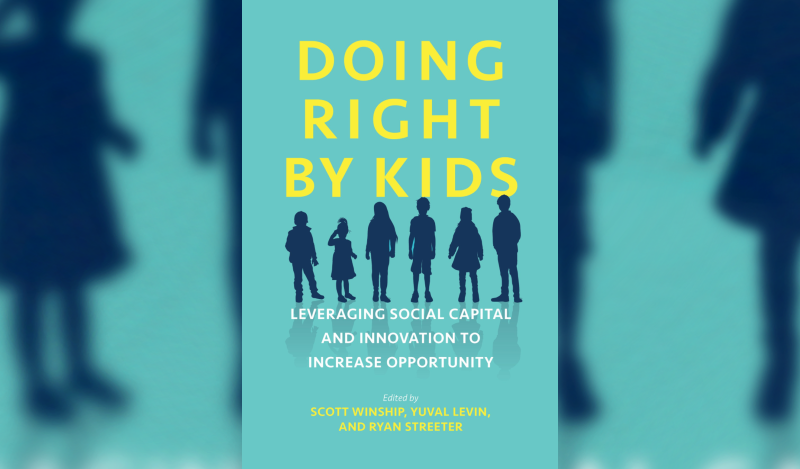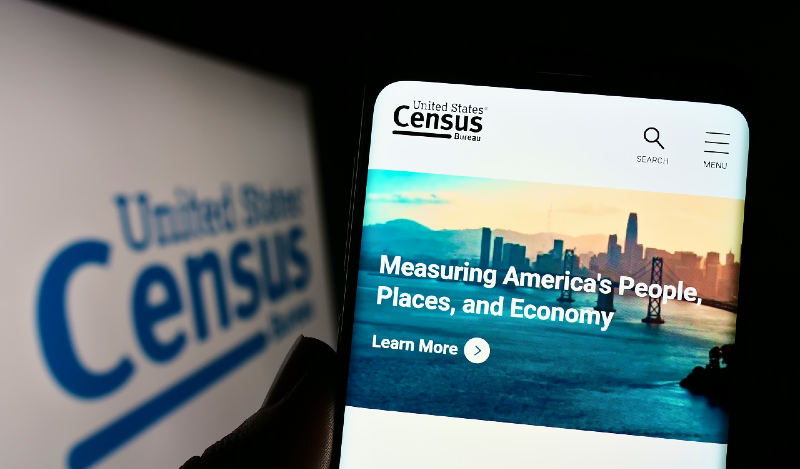Welcome to Our Research Archive
Search and filter by content type, issue area, author, and keyword
- ✕ Clear Filter
- Artificial Intelligence (6)
- Child Welfare (44)
- Child Welffare (2)
- Civil Society (35)
- Economic Opportunity (1)
- Economic Security (105)
- Economic Well-Being (4)
- Education (208)
- Family (114)
- Featured (6)
- Fmaily (1)
- Fraud (2)
- Housing (110)
- Housing Supply (1)
- Immigration (2)
- Labor Market (2)
- Marriage (1)
- Safety Net (224)
- Social Capital (43)
- Social Captial (1)
- Tax & Transfer Policies (1)
- tax credit (2)
- Technology and Innovation (1)
- Temporary Assistance for Needy Families (TANF) (1)
- Welfare (3)
- Workforce (120)
- Workforce Development (3)
- Workfrce (1)
- Workfroce (1)
- Workorce (1)
- ✕ Clear Filter
- Adam J. White (1)
- Angela Rachidi (62)
- Beth Akers (39)
- Brent Orrell (108)
- Bruce D. Meyer (15)
- Casey B. Mulligan (1)
- Charles Murray (1)
- Daniel A. Cox (11)
- Edward J. Pinto (28)
- Edward L. Glaeser (10)
- Frederick M. Hess (40)
- Greg Wright (1)
- Howard Husock (91)
- Ian Rowe (15)
- James C. Capretta (1)
- James Pethokoukis (20)
- John Bailey (2)
- Joseph Fuller (5)
- Kevin Corinth (76)
- Kyle Pomerleau (9)
- Leslie Ford (6)
- marie cohen (1)
- Mark Schneider (9)
- Mason M. Bishop (2)
- Matt Weidinger (85)
- Matthew Continetti (1)
- Max Eden (3)
- Michael Barone (1)
- Michael Brickman (3)
- Michael Pugh (2)
- Michael R. Strain (35)
- Naomi E. Feldman (1)
- Naomi Schaefer Riley (67)
- Nat Malkus (21)
- Nicholas Eberstadt (5)
- Paul Ryan (3)
- Preston Cooper (39)
- R. Glenn Hubbard (4)
- Ramesh Ponnuru (5)
- Raphael Colard (1)
- Richard Burkhauser (8)
- Richard V. Burkhauser (4)
- Robert Cherry (6)
- Robert Doar (14)
- Robert Pondiscio (18)
- Ross Douthat (2)
- Ryan Streeter (5)
- Sally Satel (2)
- Samuel J. Abrams (7)
- Scott Winship (62)
- Stan Veuger (10)
- Timothy P. Carney (16)
- Tobias Peter (35)
- W. Bradford Wilcox (86)
- Yuval Levin (10)
September 17, 2024
The Blue State Family Exodus: Families Are Migrating to Red and Purple States
You would think that Minnesota is a mecca for families, judging by the adulatory press coverage that Democratic Gov. Tim Walz’s family policy record in the state has received from liberal professors and pundits. Celebrating the vice presidential nominee’s moves to expand the child tax credit for poor families, advance paid family leave, and provide…

September 17, 2024
Back to School: Shedding Light on Risks and Harm in the Private Student Lending and Servicing Market
At present there are more than 1.74 trillion dollars in student loans outstanding in the US economy. This is a massive amount of money that represents serious liabilities for millions of borrowers across the United States who are grappling with the process of repayment. This massive amount of outstanding debt also represents a tremendous liability…

September 16, 2024
A Pyrrhic Victory Against Student Loan Default
The Congressional Budget Office (CBO) has published a new report on federal student loan repayment, and the picture isn’t pretty. Six years after first entering repayment on their loans, over half of borrowers owe more than they did when they started repayment. This disappointing fact is partially the result of a program that, ironically, was meant to…

September 12, 2024
Surgeon general’s dour picture of parenthood misses the mark
Fifteen years ago, after we had adopted five children, I thought my wife and I were done having children. Boy, was I wrong. She got pregnant with twins in 2009 and, after the girls were born, I was shellshocked by the double dose of diapers, late nights and extra parenting demands — not to mention…

September 11, 2024
Doing Right by Kids: A Book Event
Event Summary On September 11, AEI’s Scott Winship gathered distinguished experts to launch the new edited volume Doing Right by Kids: Leveraging Social Capital and Innovation to Increase Opportunity, a call to increase opportunity and upward mobility for children from poor families. The first panel focused on the importance of place. Panelists discussed how to contextualize…

September 11, 2024
After Decades of Competitive Admissions, Getting into College Has Finally Become Easier
High school seniors fretting over whether they’ll receive a college acceptance letter can sleep a little easier. College admissions rates, which had been declining for decades, are now on the upswing. Indeed, most colleges now accept a greater share of their applicants today than they did twenty years ago. Until recently, rising admissions rates were far…

September 11, 2024
As America’s housing crisis intensifies, the American Housing and Economic Mobility Act of 2024 has emerged as a high-profile yet expensive solution.
The bill comes with a $500 billion price tag and endorsements from leading Democrats, including Vice President Kamala Harris. Moody’s, a major financial services company, has also blessed the act, predicting it will lower rents and significantly boost the supply of affordable housing. But before the country embraces this rosy outlook, it must confront a stark reality: Government interventions in housing…

September 10, 2024
America is Still Working
Sometimes it seems like Americans can’t decide whether we work too much or too little. We hear that because of rising inequality and a lack of good jobs, workers must toil too many hours at wages too low to support a family. By other accounts, the machines— if not robot overlords, then at least their…

September 10, 2024
Event: New Census Data on American Families’ Economic Well-Being
Event Summary On September 10, AEI’s Center on Opportunity and Social Mobility gathered leading experts to analyze the new poverty and economic numbers from the US Census Bureau for 2023. AEI’s Kevin Corinth began by summarizing the data’s main findings. Median household income rose, and the official poverty measure (OPM) showed that poverty declined while…

September 9, 2024
The Nanny State Is Not the Answer to Parents’ Challenges
The chaos of summer is over. Kids have gone back to school. But fall brings a whole new set of challenges. We parents have spent the past few weeks creating complex matrices — schedules for child care, after-school activities, and car pools. But by next week, someone will get sick, or a babysitter will quit, and…